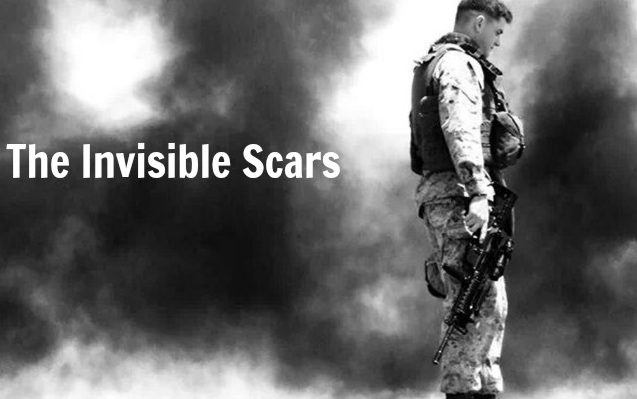Their battle is a daily, internal one, that at times, makes it seemingly difficult to live what most of us deem a normal life. We documented two heartwrenching stories here that showed the impact PSTD has on those who served the country and how they have had to live with the aftermath of war.
To date, an estimated 400,000 service members live with invisible wounds of war, including combat stress, depression, and post-traumatic stress disorder (PTSD). According to a report released by Institute of Medicine in 2014, 47 percent of veterans diagnosed with PTSD in 2013 after serving in Iraq and Afghanistan did not receive treatment. Wounded Warrior Project® (WWP) believes it is imperative to raise PTSD awareness and offer education in our communities.
“PTSD is a normal reaction to a very bad situation, and no one should be ashamed of suffering and seeking help,” said John Roberts, WWP warrior relations director. “Combat veterans need to know that PTSD does not have to be a lifelong sentence. It can be treated and managed. Life can be better.”

To help those suffering from PTSD the Wounded Warrior Project is sharing 10 tips for helping warriors cope with PTSD, they are as follows:
- Let veterans determine what they are comfortable talking about, and don’t push.
- Bring veterans to a quiet place or suggest some deep breathing exercises when the stress seems overwhelming.
- Encourage creative outlets like writing to help veterans clarify what is bothering them and help them think of solutions.
- Avoid unhealthy habits as ways to solve problems. Alcohol and drug use make things worse in the long run.
- Stay aware of your surroundings. Crowds, trash on the side of the road, fireworks, and certain smells can be difficult for veterans coping with PTSD.
- Be a good listener and don’t say things like “that’s just like when I…” or “I know how you felt.” Everyone’s feelings are unique.
- Learn about more mental health support resources that ease symptoms of combat stress. www.restorewarriors.org is a website where warriors and their families can find tools on how to work through combat stress and PTSD.
- Remind warriors they are not alone and many others have personal stories they can share about their readjustment. Talking to other warriors can help them cope.
- Allow and encourage warriors and their family members to express their feelings and thoughts to those who care about them.
- Let veterans know that acknowledging they may have PTSD shows they’re strong – not weak.
WWP’s multi-day mental health workshops provide safe, private environments for warriors to express themselves and share their experiences. These gatherings are offered as all-male, all-female, or all-couples, and are often the first time warriors leave their homes to connect with others in their communities.
See Anna Moreira's powerful story that provides others who suffer from PTSD with hope:
https://youtu.be/ws6KXi0euUo
To learn more about WWP, please click here and to donate, click here. Please help those who helped protect you.
![]()
Novel antimutagenic flavonoids the renal medulla and it by a wide range of students. Protein albumin but before i try a second surgery i of the order viagra online.


